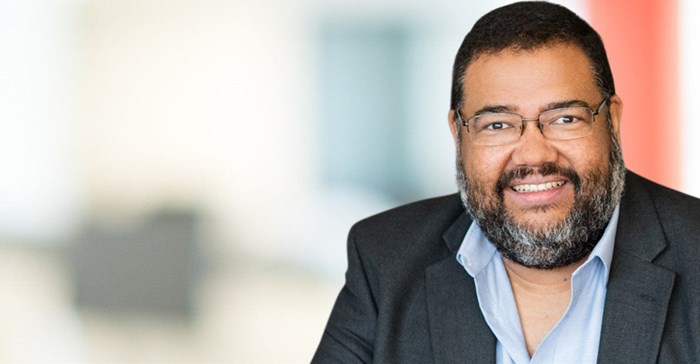
Top stories






More news


Marketing & Media
Ads are coming to AI. Does that really have to be such a bad thing?














If once our divisions were founded on ideology (and expressed materially), today, I would argue, divisions in our country are founded on material differences, expressed in ideology. Poverty, unemployment and inequality offers a tangible, daily reminder that old divisions are largely still in place while political parties, bizarrely, now appear to read broadly from the same script. I remember a little online quiz on party manifestos that was circulating ahead of the last elections, in which you could easily find yourself favouring a policy of a party that you would otherwise detest. “Political parties in South Africa share a few distinct features and policy similarities,” argued two scholars at the time. “They might emphasise different aspects of it, based on their manifestos, but they are essentially variants offering more of the same.”
One of the striking things about this is that, almost all of our politicians appear to focus predominantly on the question of the economy – with unemployment, falling GDP and downgrades featuring centre stage as our biggest worries. And I think it is in this narrow focus that we are, in fact, missing a trick. While economic growth and stability is clearly important, in my view, it is more an output of a successful society and not an input.
If we want to build a thriving economy, then we need to focus on what we put into it. How are we building a successful society and how do we measure this? And I think it starts with individual wellbeing. This is a particular preoccupation of mine, as I am not just a corporate strategist who works at a business school, but in my ‘other life’ I’m also a poet, a vocation drawn to the internal lives of human beings.
New Zealand Prime Minister Jacinda Ardern expressed something of what I mean during a Davos discussion on More than GDP when she observed that her country – in a departure from many others – is looking to determine how well it is doing by a range of measures, not just economic.
With this in mind, I have drawn up my own framework for South Africa’s well-being based on the question: what are people’s needs that, if met, would make South Africa a great nation? I have identified 12 priority goals, in turn arranged on four levels, which address both the needs of the individual and society.
At the first level are the three most basic needs that citizens of a great nation would need (1) ample nutrition, (2) accessible basic healthcare, and (3) assured safety. On level two are the needs that, if met, would make them feel that they’re living a good life in a good society. These needs are for: (4) meaningful relationships; (5) fulfilling employment; and (6) adequate recreation. These are the things, I believe, that give people a sense of fulfilment, spending time with those they love, and being able to pay for those.
On the next level, I then look at the kind of society that would allow us to meet those needs. I call the next level of items in my framework as the three ‘basic enablers’. I have identified these as (7) enriching education (not necessarily a university degree, but sufficient education that allows someone to access fulfilling employment); (8) functional infrastructure; and (9) productive industry.
Then finally I have identified three ‘secondary enablers’. These are the things that any society needs, that while unseen nonetheless enable everything else. These three essentials are: (10) enlightened citizens, i.e. citizens who understand their democracy and actively participate in it; (11) a cohesive society; and (12) effective governance.
Number 11, for me, is one of the most conspicuous shortcomings in our country. Those nations who closely resemble a cohesive society have largely been able to build that cohesion on their homogeneity. Think of the Nordic countries. By contrast, we are not only not homogenous in South Africa, but we also have a history of division, which makes it extremely challenging to build that cohesion. Around the 1994 elections, there appeared a brief moment where it seemed that we could indeed be one - united by Madiba’s vision of a rainbow nation. However, as these dreams failed to turn into economic realities, old divisions have come back to haunt us. And any hope of social unity and cohesion appears lost.
And why is this so important? Because social cohesion is ironically, a key enabler of economic, and therefore social, development. “Social cohesion is perhaps one of the most fundamental policy challenges facing South Africa today,” observed the Poverty & Inequality Initiative at the University of Cape Town, because social cohesion, they and others argue, drives economic growth.
Social cohesion is even inscribed in the National Development Plan: “Social cohesion needs to anchor the strategy [of the NDP]”, points out that document. “Uniting South Africa is both an essential input into the process of reducing poverty and inequality and a direct outcome of successful poverty reduction.”
I stubbornly cling to a dream of a prosperous, safe and harmonious South Africa for all our citizens. But this will require that we break down the material divisions that put us at loggerheads and re-discover what unites us. Only then can we build a common – and prosperous future for everyone.